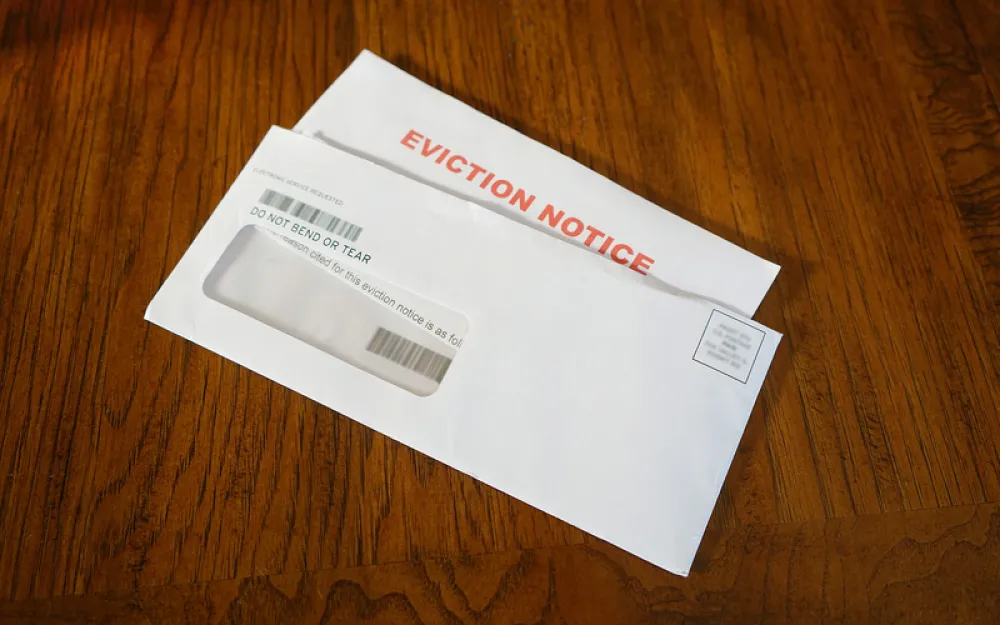
One day you might be feeling relatively secure, going about your business, and making your rented house or apartment your own (within the pretexts set out in the Assured Shorthold Tenancy agreement). But this peace can be brought to a sudden end by the arrival of an eviction letter from your landlord informing you that you have 2 months to find a new home.
No Fault Evictions
Under Section 21 of the Housing Act 1988 landlords can issue a ‘no fault’ eviction for any reason they like. Tenants must vacate the property or find themselves in contravention of the law. What of those that can’t lay their hands on the money for moving fees, deposit and upfront payment of rent on a new property? This is the manner in which thousands of English (the subject is handled differently in the three devolved nations) citizens find themselves suddenly and brutally homeless.
Following successful campaigns by organisations lobbying for tenants’ rights, the abolition of No Fault evictions has been on the cards since the publication of the current 2019 manifesto. It has been referred to in two Queen’s Speeches (2019 and 2021) to fanfare headlines without anything actually being done. Yet a third Queen’s Speech scheduled for later this month is already being trailered as including (again) parliamentary time set aside to legislate for the reform of Section 21.
Remembrance of Reforms Past
Time and again: recommendations are made, opinions sought, lengthy papers are written by the civil service, and… nothing happens. A previous Conservative administration looked into this issue in 2014 with recommendations made for the adoption of a three year tenancy with rolling break clause to become the standard. Anybody involved in the letting industry can tell you that much shorter periods remain the norm.
Government Strategy
Part of the strategy of government is to co-opt the language and policies of the opposition so that claims can be made come election time that all popular policies belong to them. It makes the opposition look like they’re nitpicking when they say: “Actually you didn’t introduce a Living Wage, you just renamed the Minimum Wage the National Living Wage without actually raising it to the levels cited by those campaigning for a living wage.”
Something similar may be going on here. The government constantly claiming in manifestos and policy documents that they are the ones who will lead on the reforms to Section 21 - without actually doing it or specifying a time by which it will be done.
Held to Account?
When the Guardian wrote about this issue recently, they quoted a spokesperson for the Department for Levelling Up, Housing and Communities: “Our private rented sector white paper will set out reforms to make renting fairer for all, including by banning section 21 ‘no fault’ evictions as soon as possible.” Holding someone to account would typically mean naming the source, printing a date by which this claim could be reasonably achieved, and revisiting the story more prominently each time the deadline passes with no action being taken. Base level journalism, you’d think, but the Guardian fails on the first two counts which rather precludes success in the third.
Do Evictions Cause Homelessness?
Meanwhile, something of the order of 225,000 No Fault evictions have been issued since the promise to abolish them was published in the 2019 manifesto. That’s an eviction every 7 minutes according to Shelter. Are these evictions a cause of homelessness? As you’d expect: homelessness charities say ‘yes’ and landlords’ associations argue ‘no’. Both sides are detailed in this government paper (Section 2 Subsection 2). The National Residential Landlords Association admits that people are being made homeless by the private rental sector but argues that the real responsibility lies with the architects of the changes to the housing benefit system.
Have you experienced homelessness as a result of a Section 21 eviction? Or are you living precariously in fear of one? If you’d like to share your story, get in touch. We’d like to talk to people about their experiences of homelessness and poverty. You can contact Kanndoo on 01603 971590 or email enquiries@kanndoo.org


